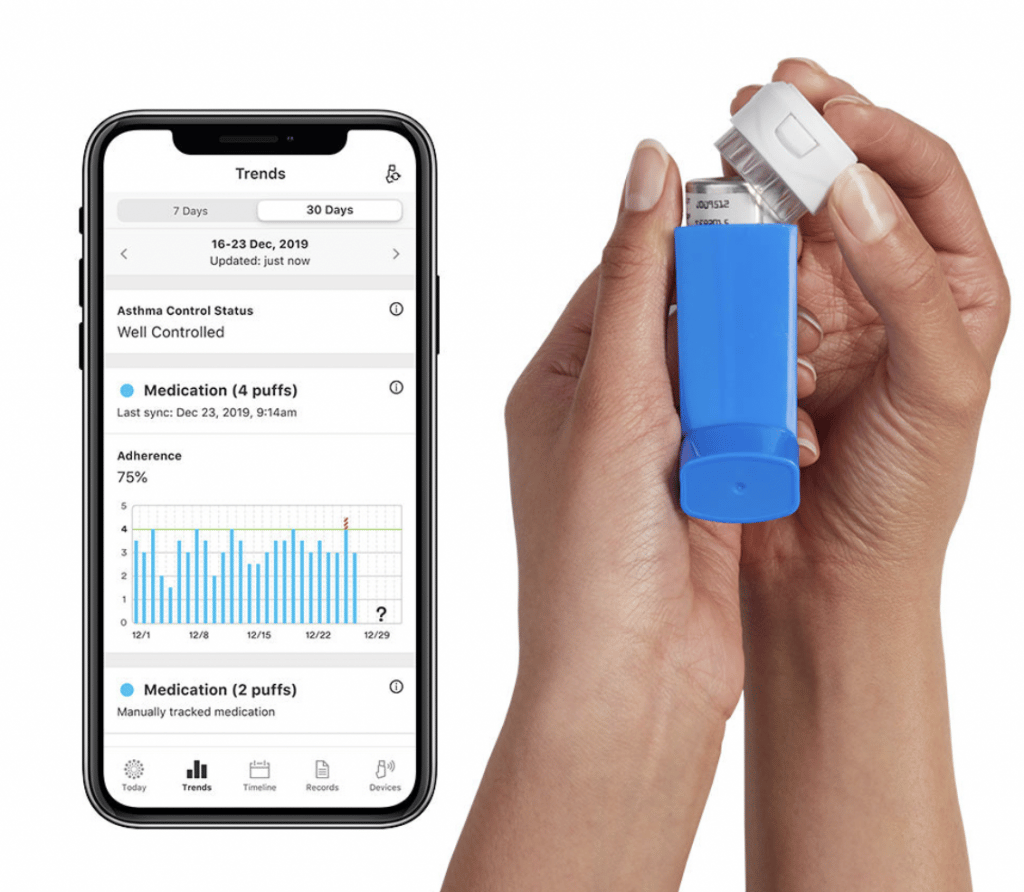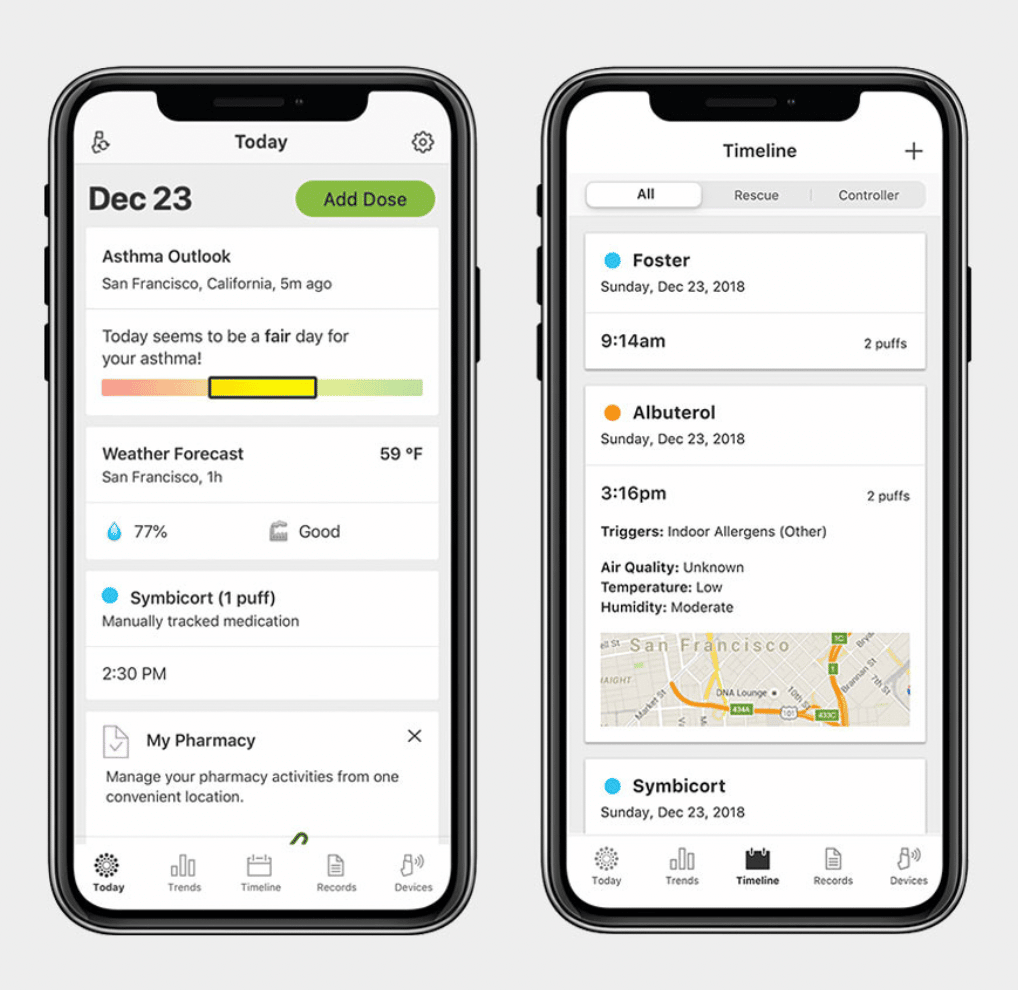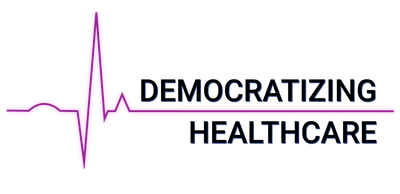About
Working with patients and healthcare providers to manage asthma or COPD. Since COPD is such a complex condition to manage, Propeller helps patients where they need it the most, in their daily lives.
Managing chronic and rare respiratory diseases is challenging for patients, caregivers and those who provide and enable their care. Patients want to experience fewer symptoms to live fuller lives and get back to doing the things they love, but may forget to take their medications regularly or feel too overwhelmed to stay motivated. Caregivers want peace of mind that their loved ones are doing well, but feel helpless when they can’t support them in person. Providers, health systems and payers seek to provide the best possible care for their patients, but often lack clinical resources and insights into how patient populations are self-managing their conditions at home.
Propeller’s precision digital health platform offers a clinically-proven solution to these crises by empowering patients with the resources they need to better manage their health, providing caregivers the tools to monitor their loved ones’ conditions, and enabling healthcare organizations with the objective patient behavior and medication use data they need to optimize their care.

How it works
Propeller sensors attach to patients’ existing inhalers; our sensors are compatible with more than 80% of inhalers on the market. The sensors remind patients to take their medications and automatically track medication use data. This information is sent wirelessly to a patient’s mobile app or web portal account, helping them learn about their symptoms and medication use habits (including when, where and how often they dose) and identify their triggers.

Clinicians can easily access this important data, too – either by using the Propeller Clinician Portal, or through an integration with their EHR. By taking the guesswork out of understanding patient adherence and disease control, clinicians can proactively identify their most at-risk patients and make more informed treatment decisions, and health systems and payers can focus finite resources on patients who need it most. When patients are surrounded with this continuous support and care connections, they become more engaged in self-managing their condition and stay motivated to take actions that will largely impact their overall health, such as taking their medications on time.
Clinical Outcomes
Propeller has validated their platform across diverse geographies, clinical settings and patient populations. As of December 2022, their research has resulted in 50+ peer-reviewed publications and 100+ peer-reviewed published abstracts, and has demonstrated promising outcomes such as:
- 58% improvement in medication adherence (Van Sickle et al. 2016, Eur Resp J)
- 18.5% reduction in asthma-related rescue inhaler use compared to a control group (Merchant et al. 2016, J Allergy Clin Immunol Pract)
- 63% decrease in daily rescue inhaler use, 73% reduction in nighttime rescue use, and 36% increase in days without rescue use among patients with COPD (Chen et al. 2019, JMIR Form Res)
- 57% reduction in asthma-related emergency department visits and hospitalizations (Merchant et al. 2018, World Allergy Organ J)
- 35% decline in COPD-related emergency department visits and hospitalizations (Alshabani et al. 2019, J Telemedicine and Telecare)
Learn more about Propeller’s clinical outcomes and published research here.
Video
News
Propeller Health was acquired by ResMed for $225M in December of 2018
Propeller Health accelerates push towards value-based care with new digital health solutions for patients, providers and health systems
Propeller Announces Initiatives to Improve Inhaler Sensor Technology



